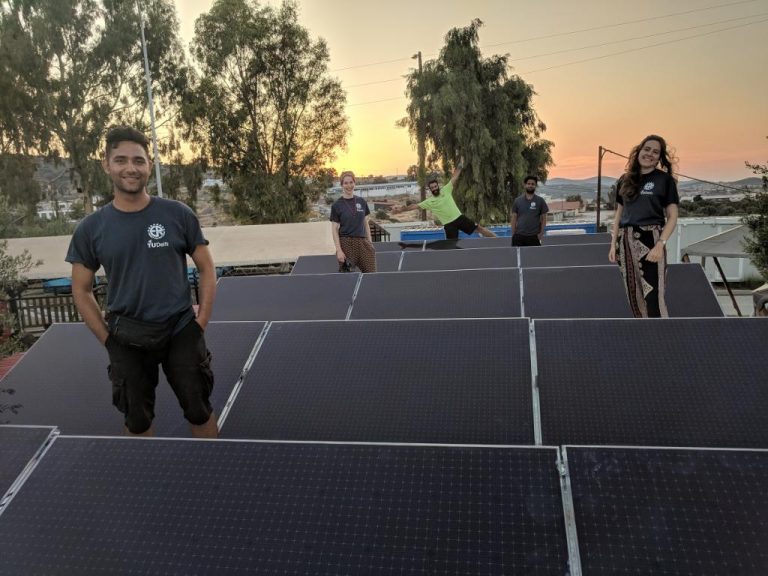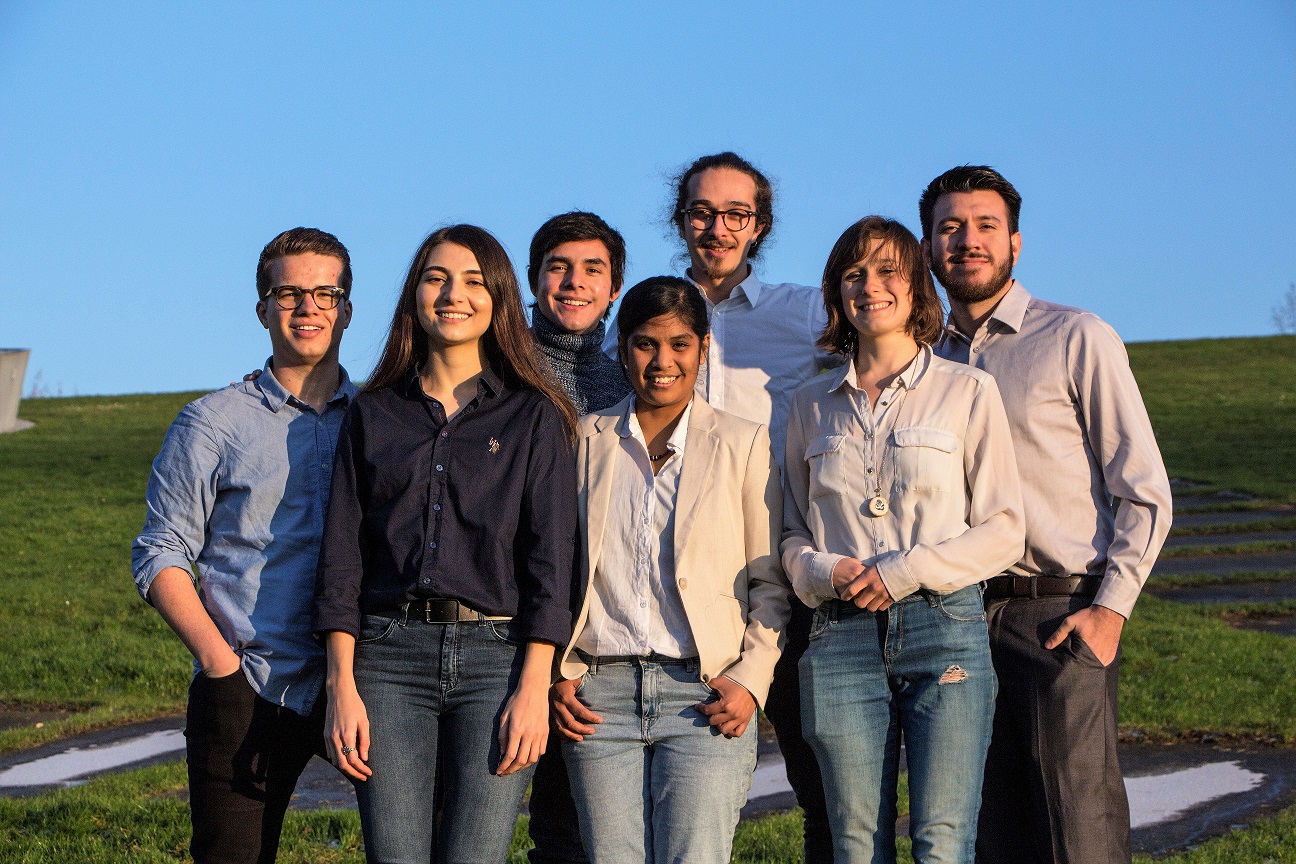After a successful first project where the Energy for Refugees team installed a solar power system in Kara Tepe refugee camp, its second trip will have an even greater impact.
The Energy for Refugees team 2019. From left to right: Lennart Janse, Elif Gül Demir, Bertram Peterson, Lodimeda Kini, Christos Toitos, Megan Atkins, José Carrasco. (Photos: Energy for Refugees)
When finishing their first year, the Energy for Refugees (EfR) team made some big changes. In December they recruited a new group of seven students to take over, and they set up a foundation and found a long-term partner in the world’s oldest NGO, Euro Relief.
“Last year the team saw that it was hard to find a place amongst all the voluntary groups. It’s quite easy to drown in the madness of social work and lose impact,” says new team member Lennart Janse. “Teaming up with Euro Relief makes us more trustworthy and gives us an opportunity to strengthen our approach since Euro Relief volunteers are in Greece all year round for maintenance and aftercare.”


Last summer Energy for Refugees installed a solar power system in Kara Tepe refugee camp.
This year’s project is almost four times bigger than last year’s. The team hopes to build a solar power system that generates up to 20 kW. Not only the size of the project changed, but the location changed too. “We will build the solar power system in Moria, the biggest refugee camp in Greece. Up to 7,000 refugees live here and they have limited access to power. Our mission is not only to double the energy capacity for them but also to reduce pollution. Most of the power currently comes from a diesel generator. The energy will be used to light the camp at night, to heat water for washing clothes, showering and for charging phones. Their phones are the only connection some of the refugees still have with their families.
To pay for materials, shipment and installation, Energy for Refugees is hoping to raise about EUR 5,000 through crowdfunding. In a generous payment for a lunch lecture in May, the Faculties of Electrical Engineering, Mathematics and Computer Science and Technology, Policy and Management have donated EUR 5,000 each. “But we are not there yet,” says Janse. “We call upon all of you to help out. It’s important to know that we will pay for all our expenses ourselves, including travel, so the money will only go on serving the people in the camp.”
Janse doesn’t know what to expect when he gets there. “Sure, we’ve heard stories from the previous group, but I think it’s something you just have to experience yourself. Luckily one of our members is Greek, so language won’t be a major issue.” And in Bertram Peterson the team also has an in-house solar design engineer. “He graduated in 2015, so we are not only bringing solar panels with us but a whole lot of knowledge too,” concludes Janse.
Information
- The Energy for Refugees team will travel to the Moria refugee camp on Lesbos island in Greece in early July and will stay 2-3 weeks.
- Donations can be made via their crowdfunding page at the University Fund website.
- Team members are: Megan Atkins, Bertram Peterson and José Carrasco (sustainable energy technology), Lodimeda Kini (industrial ecology), Christos Toitos (electrical engineering), Lennart Janse (construction management and engineering) and Elif Gül Demir (complex systems engineering and management).
Do you have a question or comment about this article?
m.vanderveldt@tudelft.nl


Comments are closed.